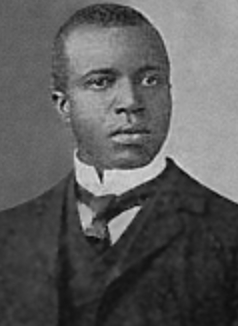On this date in 1868, composer Scott Joplin, the “King of Ragtime,” was born in Texas. His early musical career took place in centers of entertainment, not in church. He played piano in a brothel and in a club (the famous Maple Leaf) that was shut down due to pressure from local churches, whose pastors were ashamed of the “iniquitous practices” (dancing and cards) taking place there. Ragtime was America’s first uniquely national style of music. Joplin’s 1899 “Maple Leaf Rag” became a huge hit, followed by dozens more, including “The Entertainer,” showcased in the 1974 film “The Sting,” which won the Best Picture Oscar.
In the opera Treemonisha, dealing with the fact that the African-American community was still living in ignorance, superstition, and misery, Joplin tells his audience that the way out of this condition is through education. He does not propose religion as the solution: “Ignorance is criminal.” Treemonisha, a woman who promotes education, is a leader who is more persuasive than the useless pastor in town. To the conjurer Zodzetrick, she says, “You have lived without working for many years, All by your tricks of conjury. You have caused superstition and many sad tears. You should stop, you are doing great injury.”
Revealing a freethought attitude, Joplin named the pastor “Parson Alltalk” — all he does is talk and exhort the people to be good; he is totally ineffectual, unable to see people’s real needs and, being uneducated, unable to provide leadership. The opera contains no gospel music, no hymns or religious melodies that would have been expected of such a community.
Joplin married Belle Hayden in 1899. Their baby daughter died in infancy and they soon divorced. He married Freddie Alexander in 1904 but she died 10 weeks later of complications from a cold. In 1909 after moving to New York, he married Lottie Stokes. He died on April 1, 1917, of syphilitic dementia at age 48 and was buried in an unmarked pauper’s grave in Queens. It was finally given a marker in 1974. He was awarded a special Pulitzer Prize in 1976 for his contributions to music. (D. 1917)


